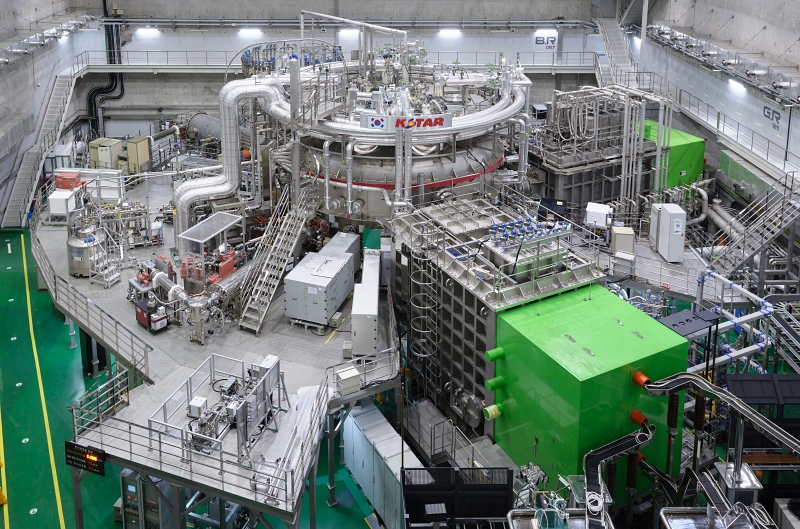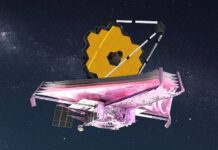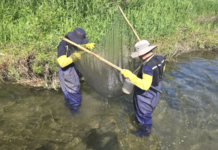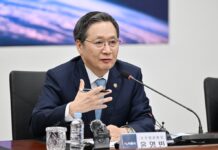
The KSTAR is a magnetic fusion device for superconducting nuclear fusion at the Korea Institute of Fusion Energy (KFE) in Daejeon’s Yuseong-gu District. (KFE)
By Park Hye Ri
A new government project worth KRW 1.2 trillion seeks to develop energy from nuclear fusion, dubbed the “artificial sun,” and related infrastructure.
The Ministry of Science and ICT on July 22 at a meeting of the National Nuclear Fusion Committee chaired by Minister Lee Jong Ho said this in announcing a resolution on a strategy to speed up the harnessing of fusion energy.
Nuclear fusion imitates the principle behind the sun’s energy output, which comes through the fusion reaction of deuterium and tritium. This emits no carbon and does not produce high-level radioactive waste, so it is attracting attention as a core energy source in the decarbonization era.
The policy goal is to secure the ability to take the early lead in the commercial application of such energy and take a major step forward as a linchpin of energy security and sovereignty in the carbon-free era.
To this end, the committee set three major strategies and nine main tasks focused on the three fundamental directions of technological innovation, industrialization and ecosystem including fusion technology innovation via private-public cooperation, setup of the basis for industrialization of such energy and creation of an innovation ecosystem in the field.
In private-public cooperation, the government will promote a project for innovating fusion engineering that combines the outstanding capacities of private engineering and public fusion technology. It will also support the development of core know-how such as diverters and breeding blankets.
To remotely diagnose fusion plants in extreme environments, artificial intelligence will be used to develop the standard operating technology for the reactors and technology to monitor their operations based on the Internet of Things.
By utilizing the technology gained through the planning and construction of the KSTAR, a domestic research device for superconducting fusion, and a network abroad formed through joint global research such as the International Thermonuclear Experimental Reactor (ITER), the ministry will support overseas construction projects for research devices.
Domestic universities will either launch or expand nuclear fusion majors and subjects and boost education training linked to ITER. This is to secure and develop highly skilled personnel to respond to rising demand for workers in the sector.
Improvements to the personnel cost system will be studied and incentives for host institutions will seek to attract outstanding foreign researchers and have them settle here.
“Fusion energy is a solution to energy problems and rising demand for electricity, so only countries with the technology to create such energy can lead the global energy market,” Minister Lee said.
“We will secure leadership in the competition for energy hegemony by acquiring fusion energy in the early stage by shifting the focus of research and development to public-private cooperation and reinforcing the nuclear fusion ecosystem.”
hrhr@korea.kr























